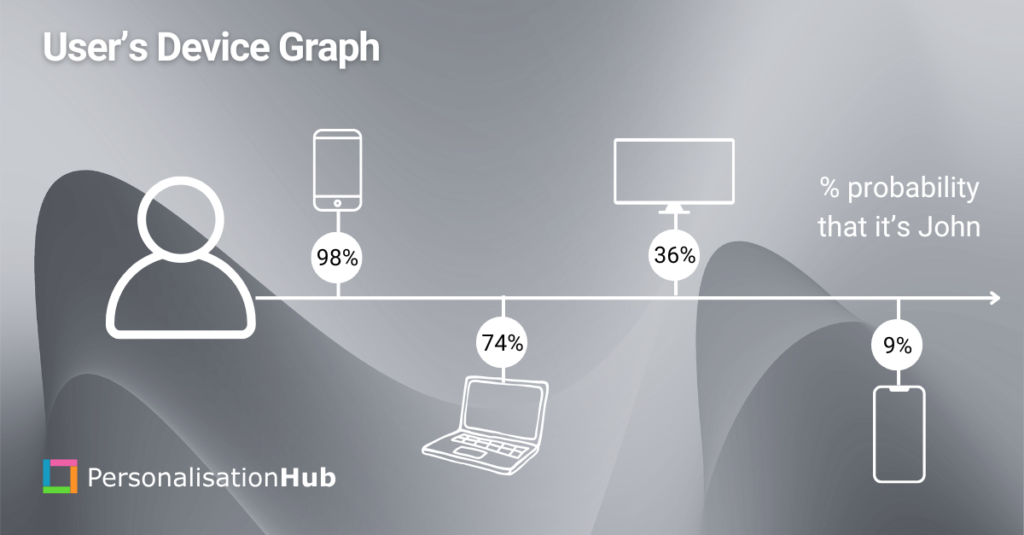Determining Customer Intent (for Personalisation)? Imagine you don’t know who you’re talking to? How could you ever hold a personal conversation?
Having a Clear Digital Identity Strategy, ensures that you know who you’re talking to.
It also ensures that you can leverage a customer’s recent interactions, to further personalise their CX (across your other touch-points).
To see read from the start:
🔗 Personalisation Value Chain
Managing Digital Identity (1 of 6)
1️⃣ Why should you care?
→ Many important digital interactions occur in an unauthenticated state (i.e. user is not logged in).
→ To be able to leverage these interactions within your intent models.
2️⃣ Requires a Digital Identity Management Strategy?
This Strategy Defines:
→ How do you associate an individual to your data/analytics (e.g. a recent interaction)?
→ How do you go about identifying an individual across their browsers/devices (aka. user’s device graph – see slide below)?

3️⃣ Identifying Shared Devices
→ As connected-tv (i.e. shared devices within a household) adoption grows, you also need to identify any shared devices.
→ You need to associate other family member(s) to these devices & assign a probability around who is actively using the device right now.
4️⃣ 3rd Party Cookies
Old World → 3rd party cookies tracked user behaviour across different websites (with no concern for a user’s privacy)
New World → This behaviour is increasingly regulated and 3rd party cookies are being phased out.
New Focus → 1st party cookies (cookies using your own domain) remain unaffected
5️⃣ Privacy Considerations using AI
→ Unlike humans, AI agents/models can easily analyse large volumes of data/interactions.
→ Ensure identifiers (that you use) can never be directly associated with an Individual’s customer record.
→ While hashed identifiers (e.g. hashed email/mobile) have been used in the past, these are no longer secure enough (AI can easily decrypt these).
→ Significant care must be taken, where identifiers are included in data that is shared with AI.
——————
In my next post, I’ll cover 🔗 Personalisation Value Chain: Data (2 of 6)
——————-







